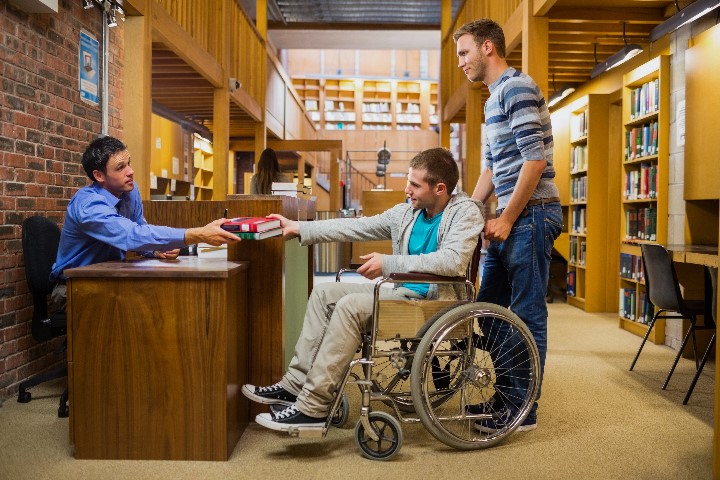University of Iowa student Michael Penniman is changing the way disabled students experience college with the help of two friends and a nonprofit start-up they launched last year.


University of Iowa student Michael Penniman is changing the way disabled students experience college with the help of two friends and a nonprofit start-up they launched last year.
Penniman suffered an injury during a wrestling match with a friend in 2012 that left him a quadriplegic. After years of recovery that required him to relearn to talk and use his arms, he began taking classes at Des Moines Area Community College.
Two years ago, Penniman transferred to the University of Iowa as a sophomore, but he was often left stranded by the home health care companies he relied on to get out of bed and to class each day, the Iowa City Press-Citizen reports.
When his care providers missed shifts, Penniman reached out to his friend and fellow undergraduate Peter Easler, who eventually took over when Penniman’s regular caregiver broke her foot.
That’s when the two – along with another friend, Jacob Newcomb – hatched the idea to create a more reliable, student-run business to help their disabled classmates, while also providing a way for reliable college students to earn extra money.
According to the Press-Citizen:
Called Students Care, the idea is to use Medicaid waiver funds — which they hope to one day supplement with grant funding and other fundraisers — to pay students who perform home care in a more reliable and more personable way.
The startup is very much in the early stages. It is a registered nonprofit, with 12 employees, which they pay from $8.50 to $11 per hour. Other than Penniman, who himself is involved in the startup’s operation, they have one other client, a student at Kirkwood Community College.
Penniman, now a 25-year-old junior, trains new employees on how to meet clients’ needs, while Easler focuses on maintaining a high quality of care as they grow the business.
“That was the biggest thing for me for a while. Every day, I would ask, ‘How is this year compared to last year?’” Easler told the AP. “Because I don’t want to build something up if it’s not exceeding expectations.”
Newcomb said the concept of students helping students works well because it means help is always nearby, and the connections encourage disabled students to get more involved with UI’s activities and clubs.
In the book, The Death of Character, sociologist James Davison Hunter has highlighted research that shows that peer-to-peer service heightens the self-esteem among participants. Not only is the founder of Students Care a person with disabilities, he has found ways to deliver his service in ways that show respect and establish new relationships.
“For college kids who aren’t disabled, its super easy to get involved in things,” he said. “We don’t want there to be any barriers for students with disabilities to go to a four-year university where they can enjoy it the whole time they are here.”
Teachers and principals interested in strengthening character formation in their school may find information and strategies at the UK’s The Jubilee Centre.